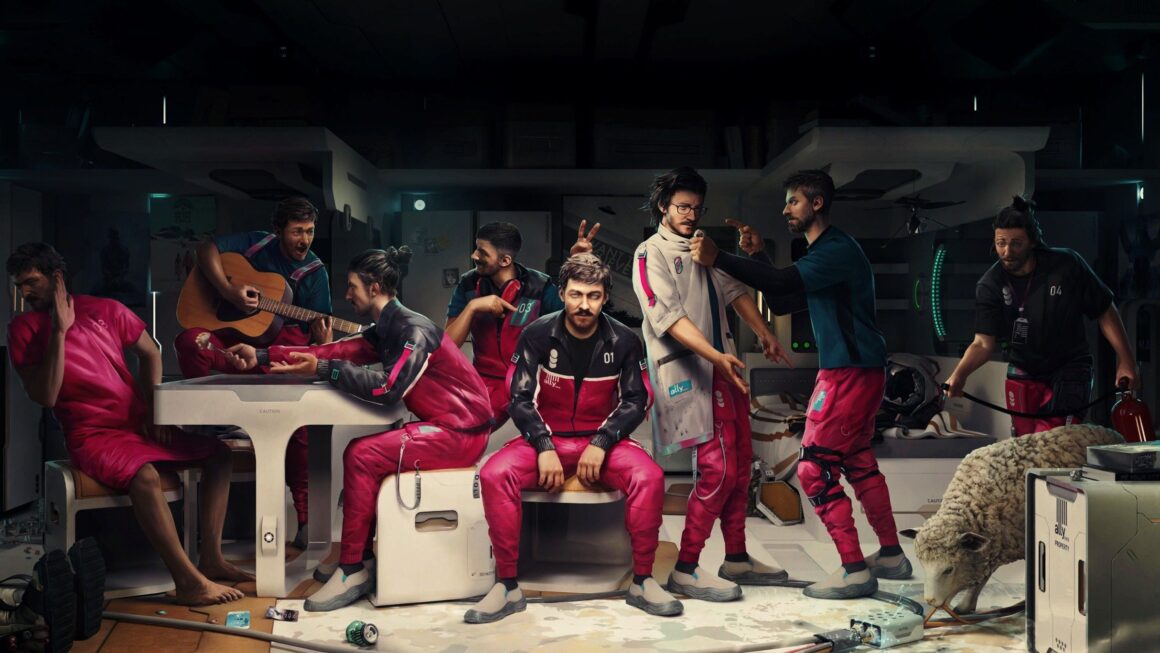Update: On June 30, 2025, 11 Bit Studios released a statement on Bluesky admitting they used AI-generated text strictly as “temporary WIPs during the development process and in a very limited manner.” They explained that they didn’t use human translators due to time constraints and that the placeholder text was left in “due to an internal oversight” and was “never intended to be part of the final release.
Video game developer 11 Bit Studios has been accused of using generative AI for translations and text captions for their game The Alters. The controversy is mostly about 11 Bit not publicly revealing their use of AI, violating Steam’s disclosure policy around AI.
So what happens when studios quietly slip AI into their games and hope no one notices?
The Evidence Is Right There in the Game
Players found explicit AI-generated prompts in The Alters, with phrases like:
“Sure, here’s a revised version focusing purely on scientific and astronomical data.”
Another example in the Brazilian Portuguese version reads:
“Sure! The text translated to Brazilian Portuguese is: Every conversation two people can have, right?”
What’s worse is that these lines made it all the way through localization and QA. Either human oversight wasn’t there, or it wasn’t a priority.
11 Bit Studios Isn’t a Tiny Indie
While 11 Bit Studios is an independent developer, it’s not a five-person team either. As of the end of 2024, the studio had nearly 300 employees. It’s the same company behind This War of Mine and Frostpunk, both critically acclaimed and commercially successful. They have the budget to hire a few human translators to look over the final text. So why didn’t they?
They had the option to use AI responsibly; to generate a draft and then let human translators clean it up. Instead, they left machine prompts in the final build and didn’t tell anyone.
Can Valve Enforce Steam’s AI Policy?
Rolled out in January 2024, Steam’s AI disclosure policy requires developers to clearly disclose any AI-generated content in their games. This includes pre-generated AI that was used during a game’s development and live-generated AI that runs while the game is running. The policy is supposed to be a compromise that allows Steam to release games that use AI and build trust between developers and players. The idea is simple: if you’re using AI in your game, just say so.
But this controversy shows the holes in that system. Right now, Valve’s enforcement depends on:
- Developers being honest in their content surveys
- Valve staff catching violations during pre-release review
- Players noticing problems and reporting them
There’s no evidence Valve is proactively checking for undisclosed AI use post-launch. And unless you leave a “Sure!” in your subtitles, it’s unlikely anyone will notice.
It’s Not Just About the Tech
AI in games is a loaded topic. For some, it represents job displacement and the loss of human creators. For others, it’s a tool that helps do the work when a human isn’t around to do it. But in this case, the bigger issue is transparency.
If developers start using AI to save time or cut costs, that’s a business decision. But when they don’t disclose it (especially when it affects a player’s experience) that’s a breach of trust.
In The Alters, the AI wasn’t just used for flavor text. It touched the core of the localization: the words characters say, the subtitles players rely on. That’s what makes this a bigger deal.
Will 11 Bit Face Any Consequences?
So far, the answer looks like it’s a…no.
As of now, 11 Bit Studios hasn’t addressed the issue publicly. Valve hasn’t taken any action. No delisting or forced disclosure. Not even a warning label.
That’s worrying.
Because if a mid-sized studio can ignore the rules and nothing happens, what’s stopping everyone else?
Valve’s distribution agreement gives it broad powers. In theory, it can remove games that misrepresent AI use. But in practice? Unless the violation is severe or players raise hell, the platform seems more reactive than proactive.
The Alters controversy raises some urgent questions for the industry:
- What actually counts as AI use under Steam’s policy?
- Who’s responsible for catching hidden AI content: Valve or players?
- And how much trust are developers willing to gamble on saving time and money?
Generative AI is here to stay. But transparency has to come first, especially when it affects the final product. If studios like 11 Bit aren’t upfront about how AI is used, they risk damaging not just their reputation, but the industry’s already fragile relationship with players.
Valve needs clearer enforcement. Studios need stronger internal standards. And players deserve to know what they’re getting.
📌 Changelog
- July 1, 2025: Rewrote the article to include the statement 11 Bit Studios released regarding the use of AI in The Alters.
- June 30, 2025: Date original article was posted.






